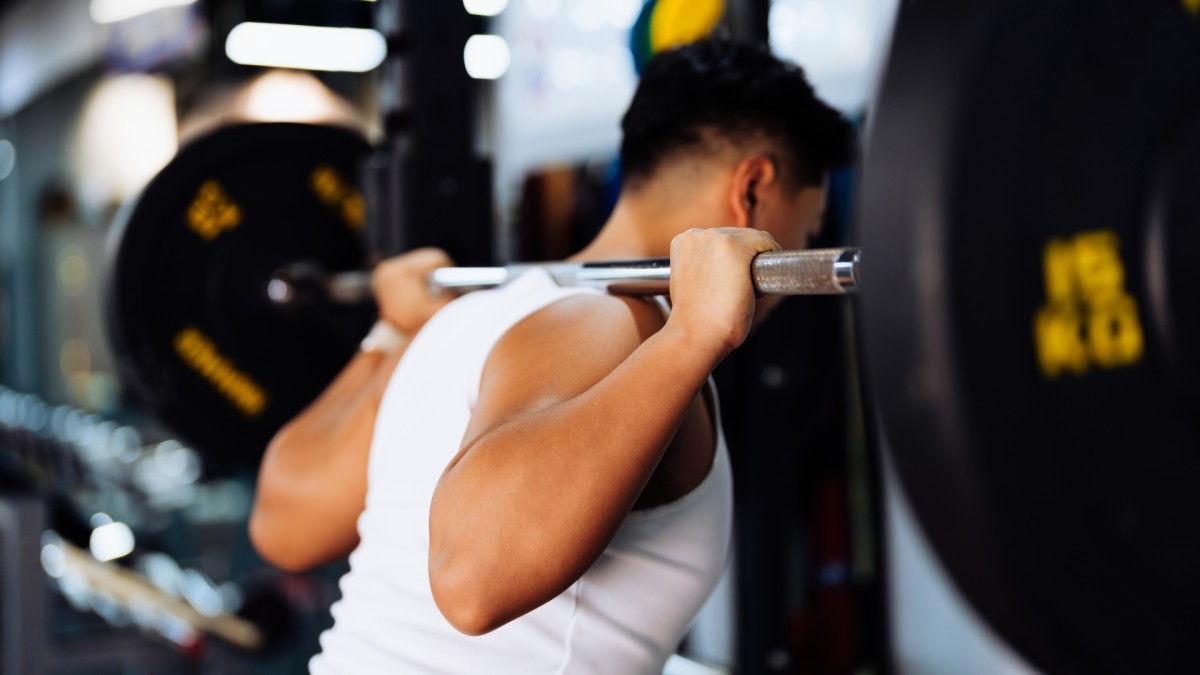The Quick Fix That Can Instantly Reduce Knee Pain During Squats
Trust us, your knees will thank you.

Knee pain is one of the greatest hurdles people face when squatting. Whether it stems from poor form or muscle imbalances, it can make squats uncomfortable—or even cause you to avoid them altogether. The good news? A simple adjustment can help prevent pain and keep you squatting strong.
"Elevating the heels during a squat shifts the center of gravity forward, allowing for a more upright torso position," Ben LaNeve, Personal Trainer at Life Time Annapolis, says. "This reduces the demand on ankle dorsiflexion, making it easier to achieve depth while keeping the knees tracking properly over the toes."
Why It Works
While injuries or joint issues can contribute to knee pain during squats, the most common culprits are poor mobility and improper form. If form is the issue, a simple fix—elevating your heels—can make a huge difference.
"For some lifters, especially those with limited ankle mobility or tight calves, this adjustment alleviates excessive forward knee travel and compensatory hip hinging, which can reduce stress on the knees," LaNeve says. "By improving squat mechanics and distributing load more effectively, heel elevation can create a smoother, more pain-free movement pattern.”
Related: This Forgotten 1980s Gym Trend Might Be the Key to Faster Muscle Growth
How to Elevate
From weightlifting shoes and squat wedges to placing weight plates under your heels, there are tons of ways to elevate your heels. According to LaNeve, investing in a pair of heel-elevated weightlifting shoes is worth the investment.
“Weightlifting shoes offer a stable base with built-in heel elevation (typically 0.5” to 1”), making them ideal for consistent squat mechanics and Olympic lifting," he says. "Squat wedges provide customizable angles, allowing lifters to fine-tune their positioning for mobility or rehab purposes. Plates under the heels are a low-cost and accessible alternative but can be unstable, especially under heavy loads. For serious lifters, weightlifting shoes are the most effective long-term option, while wedges work best for mobility adjustments and rehab.”
Can Heel Elevation Allow Lifters To Handle More Weight?
Before weightlifters try anything, they always ask the same thing—will this help me lift more? According to LaNeve, the answer is yes.
“Elevating the heels can help lifters handle more weight by improving squat mechanics," he says. "It enhances depth, reduces forward lean, and optimizes knee tracking, leading to better force distribution. By minimizing mobility restrictions and shifting load into the lower body more efficiently, lifters can generate more power and maintain stability under heavier loads.”









































































